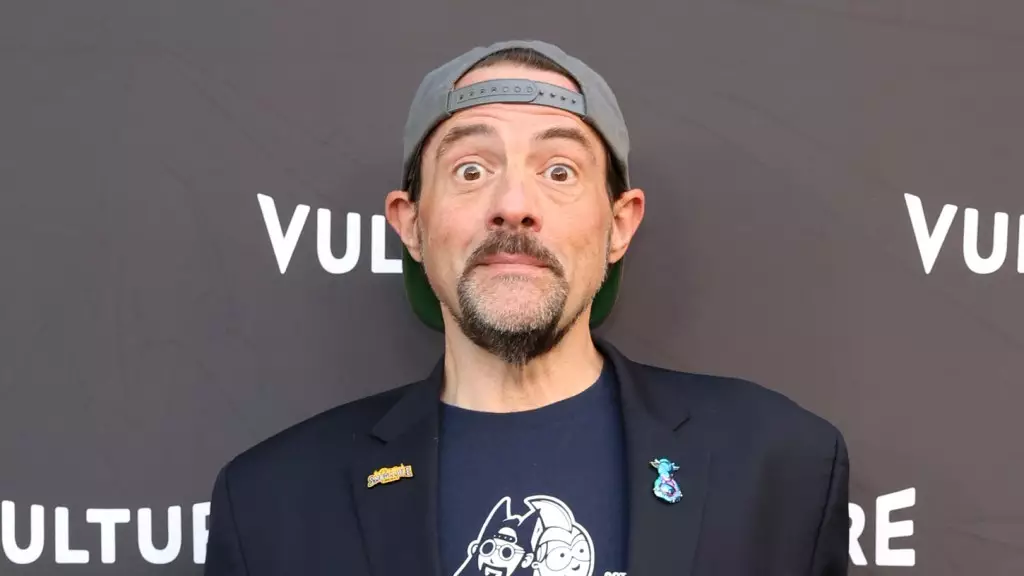In the realm of independent filmmaking, few auteurs have made waves quite like Kevin Smith. Two and a half decades after the release of his infamous film “Dogma,” Smith is poised to reignite the conversation around one of his most controversial works. As he shared during the Dogma Confessional at the Vulture Festival, there are plans afoot for a sequel, stirring both excitement and skepticism among fans of the original. The landscape of cinema has evolved since 1999, yet Smith’s unfiltered humor and unique worldview remain steadfast—and now they will be put to the test once more.
Sequels often grapple with an innate challenge: the balancing act of respect for the source material against the innovation required to keep audiences engaged. A large number of viewers harbored strong emotions about Smith’s announcement, with comments concerning artistic integrity pouring in. “Don’t touch it, you’ll ruin it,” is a sentiment echoed by many who cherish “Dogma” as a cult classic. Smith, however, confidently defies that apprehension, promising an exploration that adheres to the quirkiness and audacity fans expect. That’s the crux of Smith’s charm; he possesses a knack for navigating the delicate relationship between reverence and irreverence.
In the heart of “Dogma” were characters Bartleby and Loki, portrayed by none other than Ben Affleck and Matt Damon. Their portrayal as fallen angels seeking a loophole back into heaven is a commentary on faith, redemption, and the human experience. Since then, both actors have ascended to significant heights in Hollywood, with careers that have taken myriad turns. The potential return of Affleck and Damon for this sequel is more than mere nostalgia; it signifies a reunion of camaraderie and artistic kinship that defined their early careers. Smith’s assertion that they “owe him” reflects an insider’s banter, emphasizing the complexities of friendship in the entertainment industry.
As Smith revisits “Dogma,” he aims not just to expand its narrative but also to reclaim its legacy in a modern context. After the tumultuous history surrounding the film’s original distribution, Smith announced that it will finally enjoy a new release, providing a fresh opportunity for audiences to experience its audacity. The possibilities this opens—sequels, spin-offs, or even a television adaptation—convert Smith’s ambitions into concrete, attainable goals. With this renewed interest, “Dogma” has the potential to resonate with a new generation that grapples with similar existential questions in a markedly different societal climate.
The shadows cast by the Weinstein scandal have loomed large over Hollywood, and Smith’s association with Miramax has not been exempt from scrutiny. The underscoring reality of celestial themes alongside the controversies of the film industry is not lost on Smith. He has expressed regret about his past dealings, declaring a commitment to redistributing residuals to support Women in Film. This introspective journey depicts an artist who recognizes the weight of his past and seeks to align his future endeavors with a more conscious ethos.
As “Dogma” inches closer to a revitalization, one can’t help but ponder the broader implications for Smith’s entire View Askewniverse. With an expansive catalog featuring iconic characters and storylines, the future emerges not just as a continuation of past work, but as an opportunity for transformative narratives that cater to contemporary audiences. The likely involvement of classic figures like Jay and Silent Bob, along with new dimensions explored in “Dogma,” hints at a rich tapestry interwoven with humor and social commentary.
Smith’s ambitions to reintroduce “Dogma” into the cinematic lexicon, alongside calls for collaborative retreads with familiar faces, invites both excitement and trepidation. The journey to create a sequel will not be without its hurdles; however, it also carries the potential for exploration, satire, and perhaps, redemption. Ultimately, as audiences prepare for this unholy reunion, they must wonder: Can Smith capture lightning in a bottle once again, or will he fall prey to the pitfalls many sequels face? The answer lies in the delicate balance of past reverence and present aspirations as they navigate the complexities of modern storytelling.


Leave a Reply